By Minaz Kerawala, Communications and Public Relations Advisor
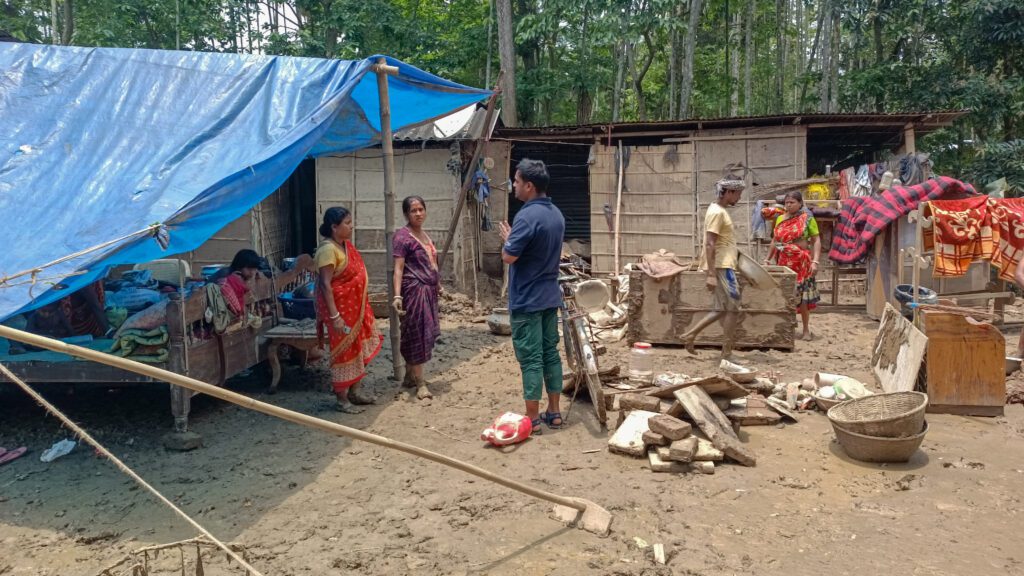

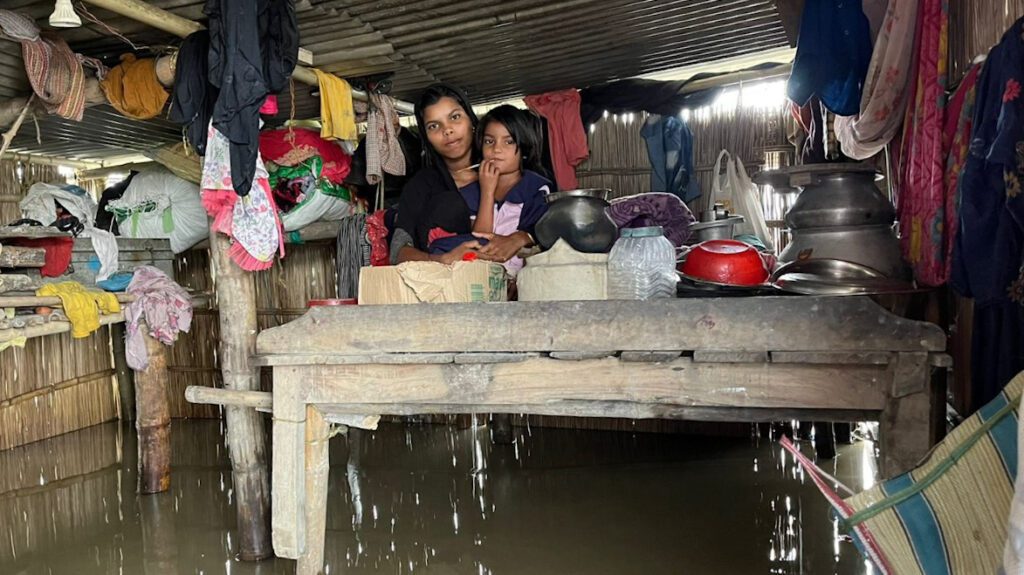

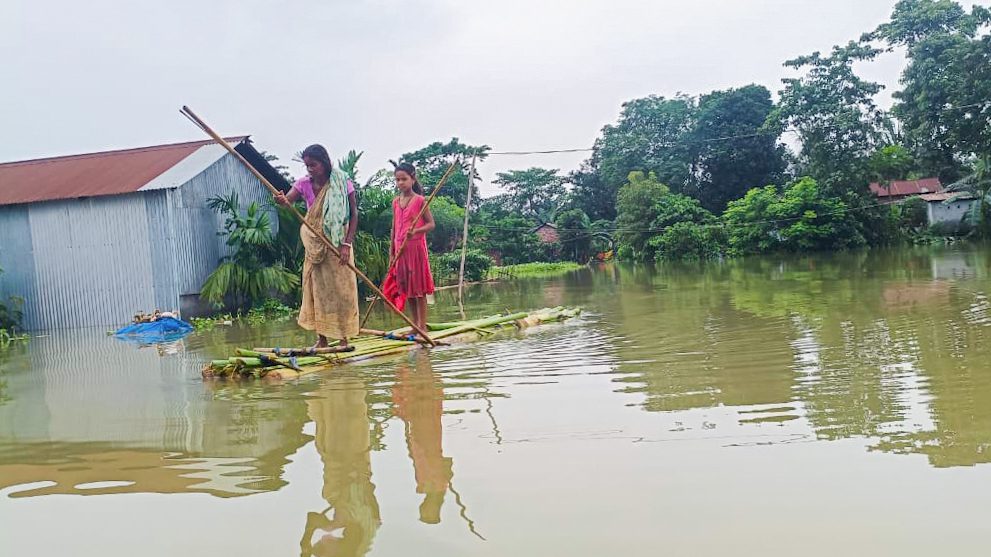

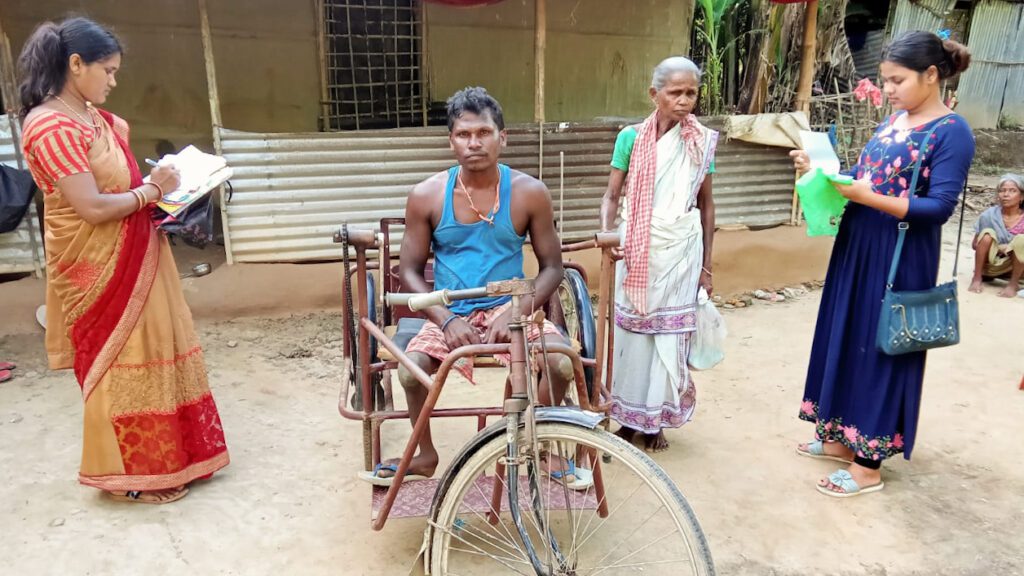

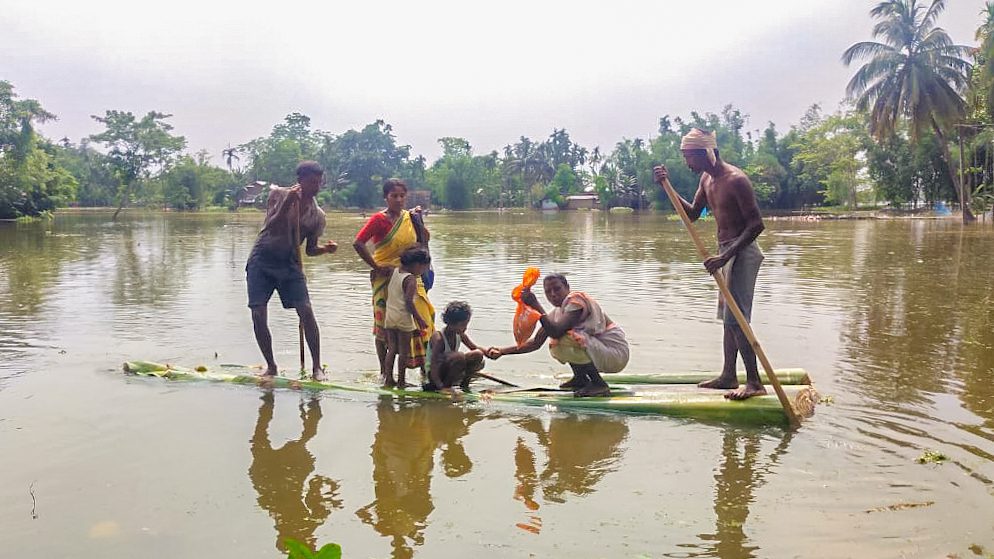

For over a month since mid-May 2022, northeastern India experienced torrential rainfalls that left catastrophic flooding and landslides in their wake. Affected areas include much of the state of Assam and parts of the neighbouring Meghalaya state. Development and Peace ― Caritas Canada has committed an allocation of over $136,000 to help our partner Caritas India respond to this emergency.
Widespread devastation
Although it has received little Western media attention, the problem is immense. The Directorate-General for European Civil Protection and Humanitarian Aid Operations estimated that 1.1 million people in over 1,700 villages across 35 districts had been affected by mid-June. A month later, Caritas India estimated that the number of affected people had increased fivefold. In Assam alone by the end of July, India’s National Emergency Response Centre was reporting that:
- Nearly 200 people had drowned or been buried under landslides
- Over 25,000 houses had been destroyed and over 280,000 were badly damaged
- Livestock losses had exceeded 54,000 heads
- More than 742,000 people were living in over 4,000 relief camps
- Over 240,000 hectares of cropland had been affected
There is almost nothing left in my home―neither food, nor materials to cook food. Everything was washed away by the flood.
Parboti Chawra (right), Thepelaguri village, Assam
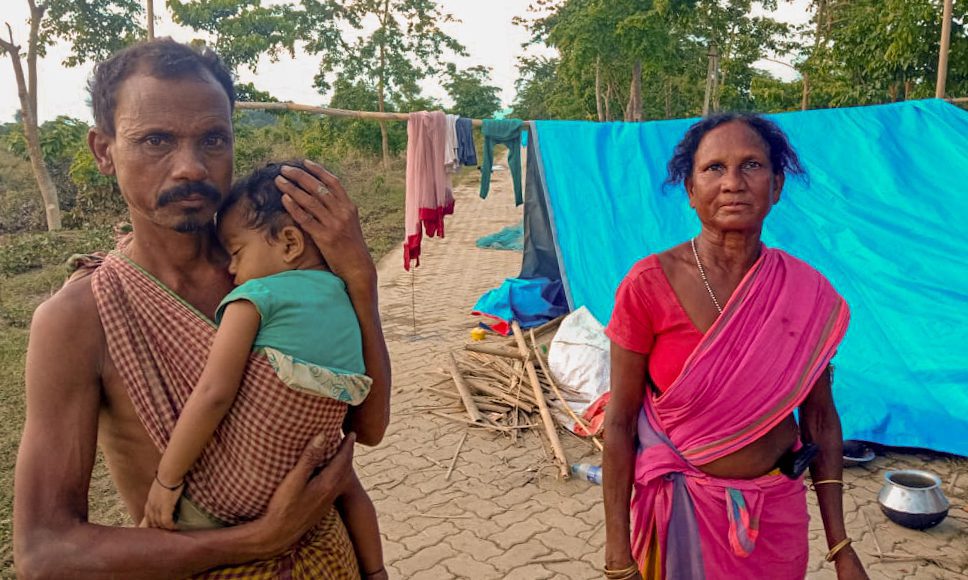

These reports have been borne out by Caritas India’s own field observations. They are deeply concerned about food security because over half the households in a region already impoverished by the effects of the COVID-19 pandemic have lost 30 to 70 per cent of their food resources to the floods.
Help where it is most needed
In responding to this situation, Caritas Canada will focus on the most underserved populations, who have been identified in consultation with government agencies, other non-governmental organizations, local dioceses and grassroots community partners.
Relying on its strong local networks and experience, Caritas India will reach people in isolated areas of five of the worst-hit districts, where food security was already known to be precarious. Priority will be accorded to households that are headed by single or widowed women and those that include young children or disabled persons. Additional care will be taken to target tribal and low-income families and other traditionally excluded groups.
I was woken by the flood at 3 o’clock on a Sunday morning. By the time I got out of the house, the water was up to my chest. I waited, trying hard to find the road. When the army came by with a boat, I was finally able to reach high ground. My family escaped, but we had to leave everything behind. Here in Camp 2, we don’t have enough shelter from the rain. Sometimes, we cannot even find food.
Shefali Das, Jathera village, Assam
A multi-pronged approach
With Development and Peace’s support, Caritas India will reach 40,000 people in 8,000 households over the coming year. Women and girls will constitute over half of the people served. The immediate and medium-term response will include:
- Cash transfers to 800 households to help the poorest people meet basic nutritional needs
- Financial support to 400 families to help them repair their homes
- Hygiene, sanitation and health and safety information sessions for 40,000 people
- The distribution of 2,000 hygiene kits to 10,000 people
- The repair of 225 toilets serving the sanitation needs of 1,125 people
- The repair and maintenance of 175 handpumps, restoring water supply to over 5,000 people
- Livelihood support for 1,200 farmer households through the provision of seeds, supplies and training and help with restoring connections to markets
How you can help
Please consider making a donation to help our partners sustain such efforts that save lives and restore dignity to our most vulnerable sisters and brothers in India and around the world.
Over the years, the solidarity and generosity of people like you have allowed Development and Peace to respond to many emergencies. In India, these have included the COVID-19 crisis; floods in 2017, 2009, 2008 and 2001; the Boxing Day tsunami of 2004; ethnic violence in 2003; and earthquakes in 2005 and 2001.

